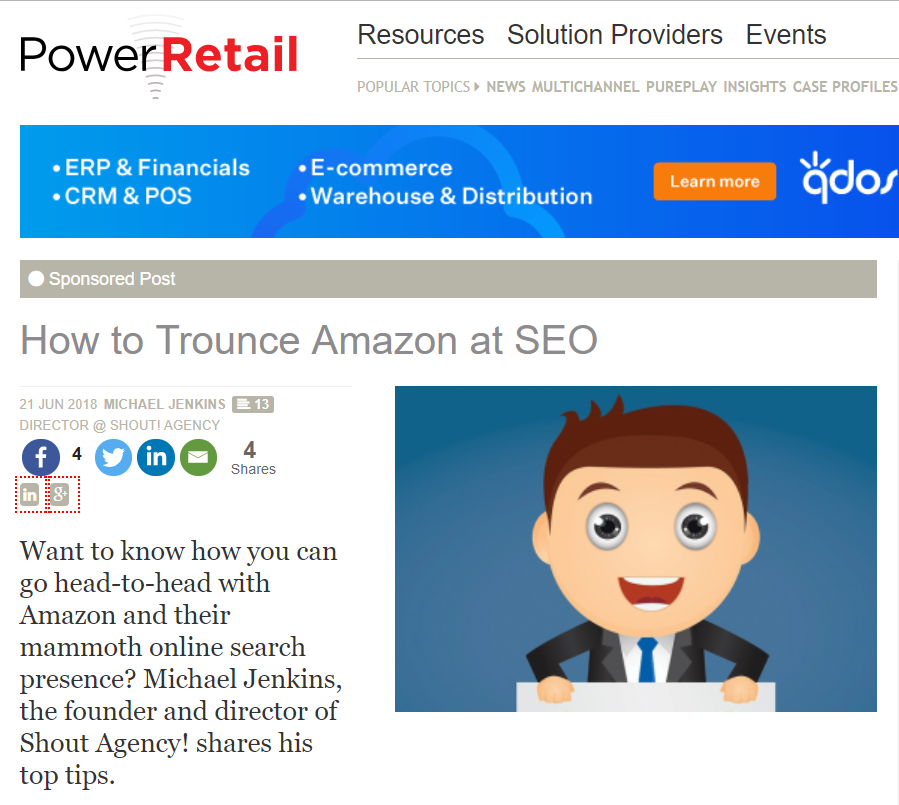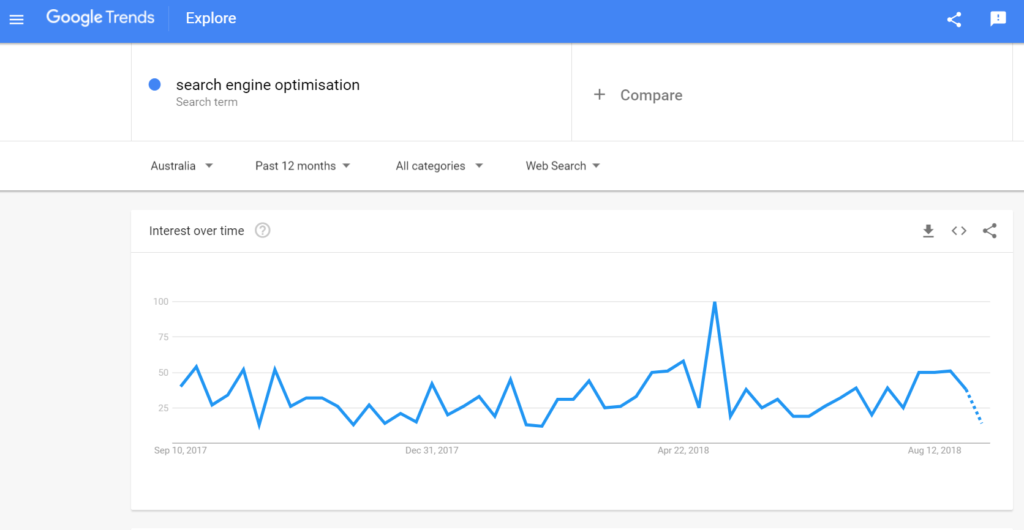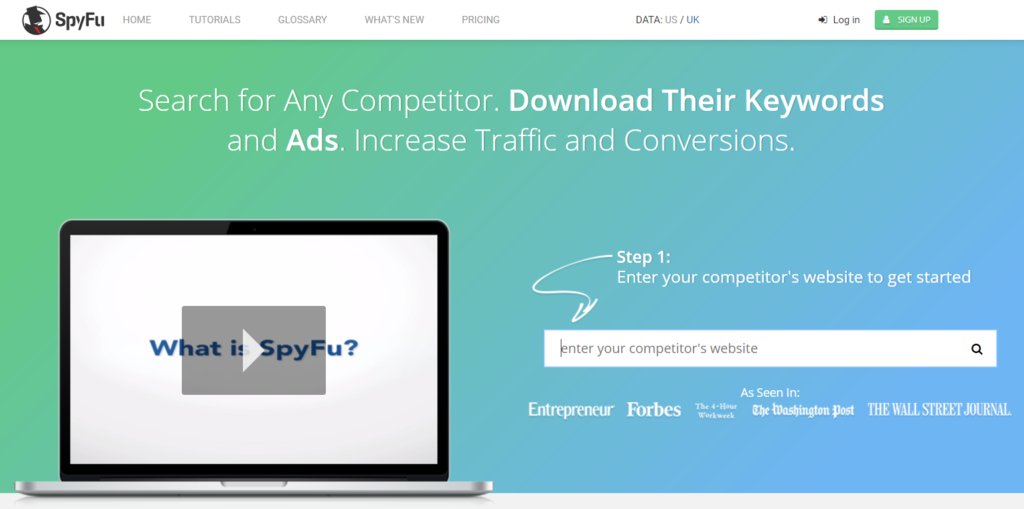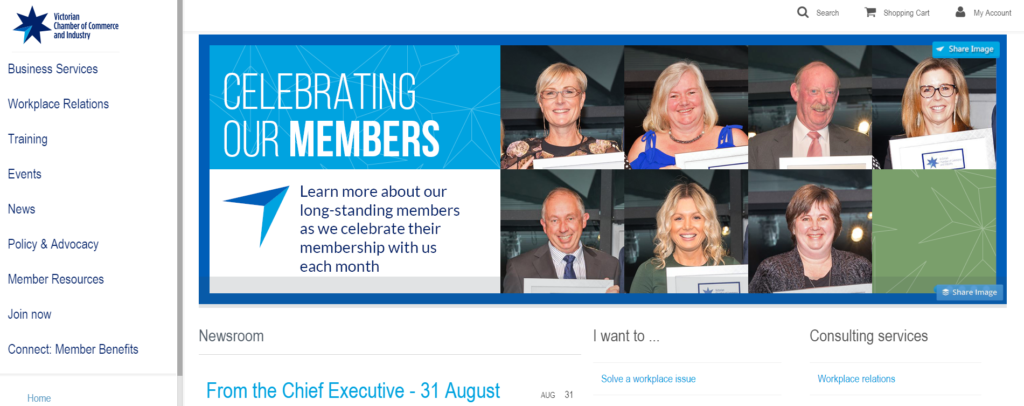Overview
Your site is all set up, and now you want to start getting traffic.
Once you set up your website it is time to update the site for on-site SEO. To help you do that, we have some off-site search engine strategies to help you drive more traffic.
Seven off-page SEO strategies to build your search traffic
1. Guest blogging
Guest blogging has been a staple of search engine marketing strategy for the past decade. It is a great way to gain trust and authority on your website, as well as build your link profile.
Many search engine marketers realize that you also gain access to different audiences with guest blogging. That is why so many professionals use this strategy.

2. Turn brand mentions into links
Does your company already have some authority or notoriety in your field? If so, you can turn that into additional backlinks to your website.
Look back to mentions you had in the media or by others in your industry over the past year.
You can use tools like Google Trends or BuzzSumo. These tools help you identify some of the best ways to turn clear brand recognition into additional search engine traffic for the future.

3. Broken links
Did someone link to your website, but then you changed your URL structure? Maybe the link they used was incorrect? Either way, you want to fix a broken link, so you can build your link profile.
Look through the Google search Console to identify 404 errors on your website. Then set up 301 redirects to fix the issue.
4. Check competitor links
Maybe you still need some additional links, and you don’t have time to blog. Perhaps you have not built up much brand recognition. If that’s the case, run a search of your competitors’ backlinks.
Use services like Spyfu or Moz to set up searches for your competitors’ backlinks.

5. Social media
Social media does not directly influence search rankings. However, the traffic from social media, as stated in previous articles, does impact your overall search visibility.
Here is an example. Let’s say you get a lot of viral traffic from social media. All the “shares” are like links back to your site. However, since leading social networks like Facebook, Twitter, and LinkedIn are no-follow, you do not get direct search traffic from them.
What does help is that the people from social media come to your site and spend time before going to other pages? Google Analytics which you should have installed on your website, then interprets that as a positive experience for users.
This data gets shared with the Google Search Console. The console then looks for similar keywords to the content received from social media. Remember that Google’s focus is to please their users.
If your website accomplishes that goal, Google will send you traffic. If not, they will send the traffic to other sites.
That is the value of social media.
6. Business directories
In addition to getting your profile on all the social networks, you should also have it on different business directories.
You need to be careful with this strategy because Google takes a harsh view of sharing your site with too many worthless business directories.
Therefore, look for relevant directories like your local Chamber of Commerce and larger sites like the Better Business Bureau.

7. Influencers
The final strategy goes beyond just simple SEO. Especially it is very effective for enterprise SEO. Influencers are a great way to drive traffic to your website.
They bring their own set of followers and introduce you to their audience.
The benefit of being connected to influencers is that sometimes they share your link as well. When these influencers share your site, it drives more search traffic. Because when they send you a backlink, it is from an influencer in your industry, which means it is highly relevant.
Google likes relevant, useful links to a website. It is a sign of trust and authority. That is why connecting with different influencers is such a valuable tool.
Final thoughts
Whatever off-page SEO strategy you use, make sure it conforms to Google standards. Because so many of the off-page tactics deal with linking, you could have a lot of challenges here.
If you have questions on how to run off-page SEO campaigns for your business, schedule a consultation with Shou today!
